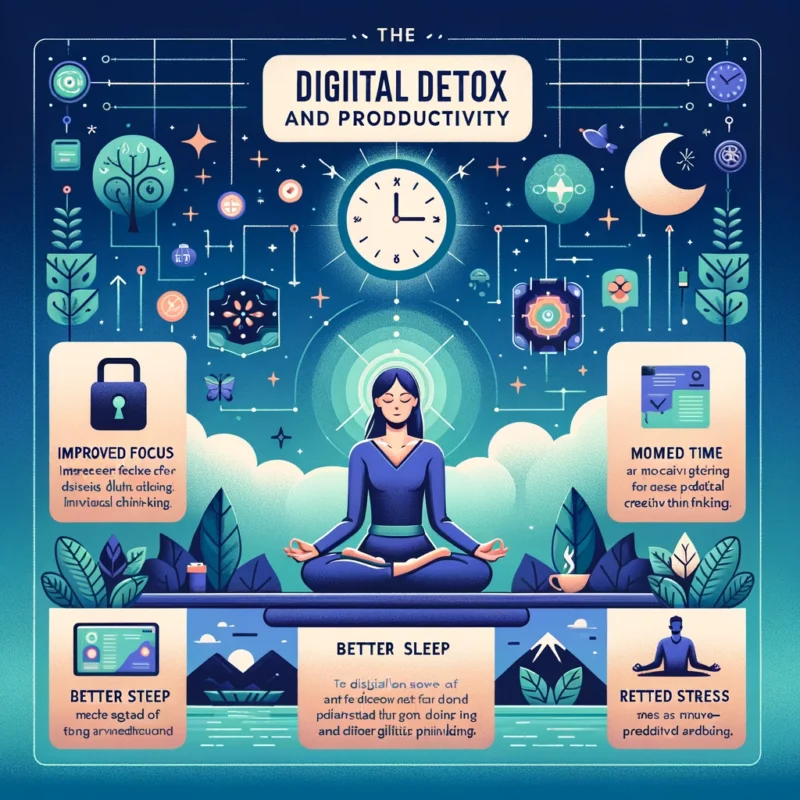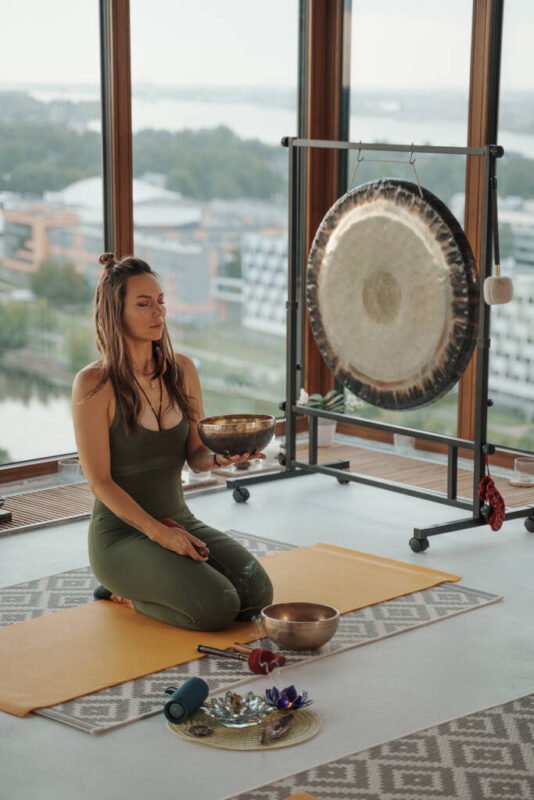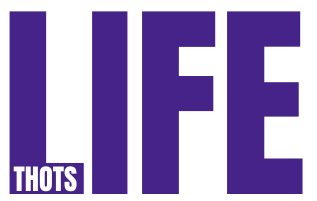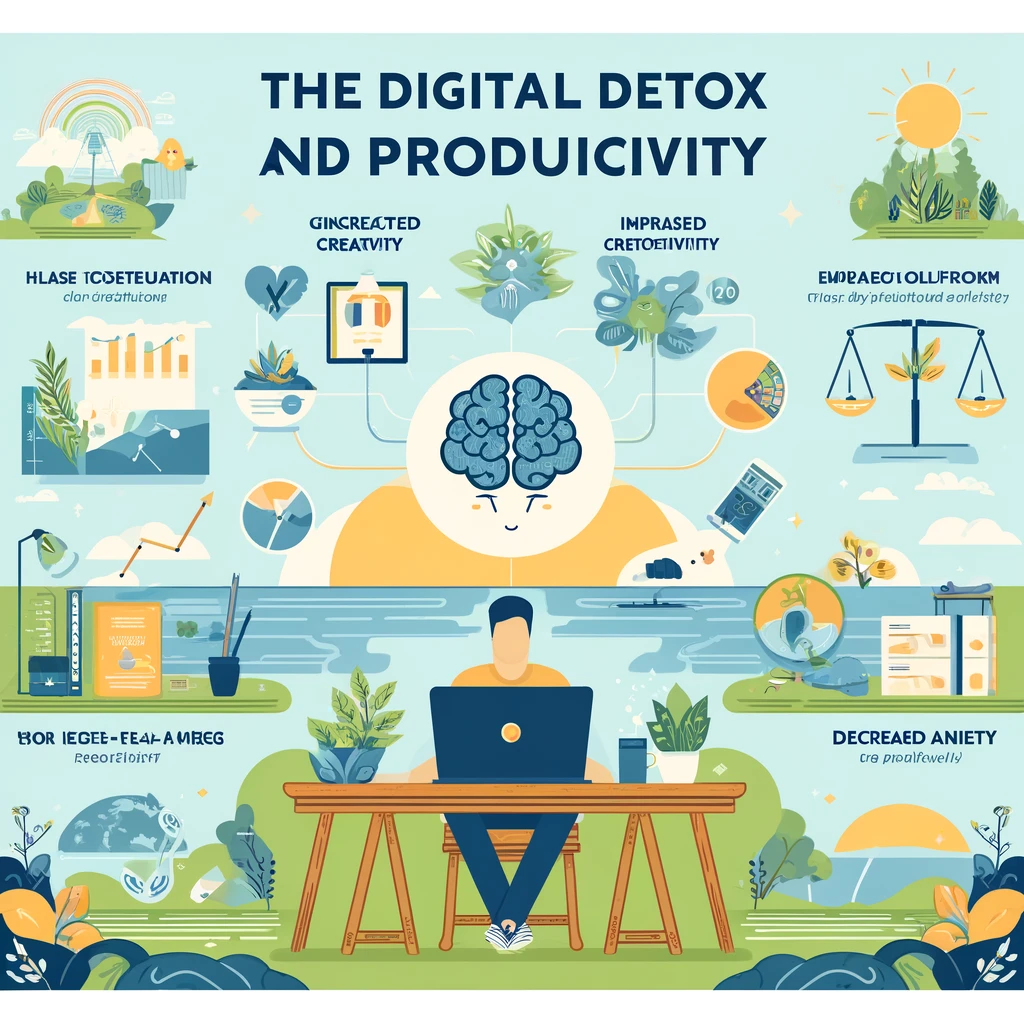It’s easy to feel like we’re drowning in a sea of notifications, emails, and social media updates. Our smartphones have become an extension of ourselves, and the idea of unplugging even for a few hours can feel impossible, even anxiety-inducing. But as someone who has experienced the transformative power of a digital detox retreat firsthand, I’m here to tell you that disconnecting from technology can actually be one of the best things you can do for your productivity, creativity, and overall well-being.
I was initially skeptical of the idea of a digital detox retreat. How could I possibly step away from my work and my online life for an extended period of time? Wouldn’t I fall behind, miss out on opportunities, or lose touch with my clients and colleagues? But after hitting a wall of burnout and creative block, I decided to take the plunge and sign up for a weeklong digital detox retreat in the mountains. And let me tell you, it was one of the best decisions I’ve ever made.
I’ll share my personal experience with digital detox retreats and explore the science behind why unplugging can be so beneficial for productivity and mental health. I’ll also provide some practical tips for incorporating digital detox practices into your daily life, even if you can’t make it to a full-fledged retreat. So if you’re feeling overwhelmed, unfocused, or just plain stuck, keep reading to learn how a digital detox retreat can help you recharge, refocus, and reignite your productivity.
What is a Digital Detox Retreat?
Before we dive into the benefits of a digital detox retreat, let’s define what we mean by the term. A digital detox retreat is a structured period of time where you intentionally disconnect from digital devices and online activities in order to focus on the present moment and reconnect with yourself and your surroundings. This can take many forms, from a weeklong retreat in a remote location to a weekend camping trip or even a day-long workshop.
The some of digital detox retreat typically include:
- No access to smartphones, computers, tablets, or other digital devices
- No access to email, social media, or other online platforms
- A focus on mindfulness, meditation, and other grounding practices
- Opportunities for nature immersion and outdoor activities
- Healthy, nourishing meals and snacks
- Structured workshops or activities focused on creativity, self-reflection, and goal-setting
- A supportive community of like-minded individuals
The idea behind a digital detox retreat is to create a space where you can step outside of your normal routine and habits, and give yourself permission to fully unplug and recharge. By eliminating the constant distractions and stimuli of the digital world, you create space for deeper reflection, connection, and creativity.
The thought of completely disconnecting from technology can be daunting, especially if you rely on it for work or communication. But as someone who has gone through the experience myself, I can attest to the fact that the benefits far outweigh the temporary discomfort. And with some planning and communication with your team or loved ones, it’s entirely possible to take a digital detox retreat without letting anyone down or falling behind.
The Digital Detox and Productivity

So why exactly is a digital detox retreat so beneficial for productivity? There are a few key reasons, backed by scientific research and studies.
1. Reduces Cognitive Load and Mental Fatigue
One of the main reasons that constant digital stimulation can be so draining is because it places a heavy cognitive load on our brains. Every time we switch between tasks or respond to a notification, we’re using up precious mental resources and energy. This can lead to mental fatigue, decreased focus, and diminished productivity over time.
In fact, a study by the University of London found that constant multitasking with digital devices can decrease your IQ by up to 15 points, similar to the effects of sleep deprivation. By taking a break from the constant onslaught of digital stimuli, you give your brain a chance to rest and recharge, leading to increased focus and mental clarity.
2. Improves Sleep and Circadian Rhythms
Another way that digital devices can impact productivity is by disrupting our natural sleep and circadian rhythms. The blue light emitted by screens can suppress the production of melatonin, the hormone that regulates sleep, leading to insomnia and other sleep disturbances.
By disconnecting from screens, especially in the hours before bedtime, you allow your body to produce melatonin naturally and regulate its sleep-wake cycle. This can lead to more restful, restorative sleep, which is crucial for productivity and cognitive function.
3. Increases Creativity and Problem-Solving
When we’re constantly plugged in and stimulated by digital devices, it can be hard to access our inner creativity and problem-solving abilities. We’re so focused on consuming information and responding to external stimuli that we don’t give ourselves the space to generate new ideas or think outside the box.
But research has shown that taking breaks and engaging in activities that promote mind-wandering, such as walking in nature or daydreaming, can actually boost creativity and problem-solving skills. By disconnecting from technology and allowing our minds to wander freely, we open ourselves up to new insights and perspectives.
4. Enhances Emotional Intelligence and Empathy
Finally, constant digital communication can sometimes lead to a decrease in emotional intelligence and empathy. When we’re primarily interacting with others through screens and text, it’s easy to misinterpret tone or intent, or to feel disconnected from the emotional reality of the person on the other end.
But by engaging in face-to-face interactions and activities during a digital detox retreat, we have the opportunity to practice active listening, nonverbal communication, and empathy. These skills are not only important for building strong relationships, but they can also translate to increased emotional intelligence and collaboration in the workplace.
My Personal Experience with Digital Detox Retreats

Now that we’ve explored some of the why digital detox retreats can be so beneficial for productivity, I want to share my personal experience with the practice.
I was initially skeptical of the idea of unplugging for an extended period of time. As a freelance writer and entrepreneur, my livelihood depends on my ability to communicate with clients, market my services, and stay on top of industry trends. The thought of stepping away from my email and social media felt like a huge risk.
But after hitting a wall of burnout and creative block, I knew I needed to make a change. I was feeling constantly overwhelmed, unfocused, and disconnected from my own thoughts and ideas. I had lost sight of why I was doing the work in the first place, and I felt like I was just going through the motions.
So I did some research and found a weeklong digital detox retreat in the mountains of Colorado. The retreat promised a complete break from technology, with daily meditation, yoga, nature walks, and creative workshops. I was nervous but excited to give it a try.
From the moment I arrived at the retreat center and handed over my phone, I felt a sense of relief wash over me. It was like a weight had been lifted off my shoulders, and I could finally breathe deeply again. Over the course of the week, I experienced a profound shift in my mindset and energy levels.
Without the constant distractions of my phone and computer, I found myself more present and engaged in each moment. I savored the taste of each meal, noticed the beauty of my surroundings, and had deep, meaningful conversations with the other participants. I also had time to reflect on my goals and priorities, and to reconnect with my own inner voice and creativity.
By the end of the retreat, I felt like a new person. My mind was clear, my body was rested, and my spirit was rejuvenated. I had a newfound sense of clarity and purpose, and I felt excited to return to my work with fresh energy and ideas.
Of course, the real test came when I returned to my “normal” life and had to reintegrate technology back into my routine. But I found that the insights and practices I had learned on the retreat stayed with me. I was more mindful of my digital habits, more intentional with my time and energy, and more focused on the things that truly mattered to me.
Since that first retreat, I’ve made a point to incorporate digital detox practices into my regular routine, even if I can’t always take a full week off. I’ll schedule regular screen-free days or weekends, take breaks to walk outside or meditate, and set boundaries around my digital communication. And I’ve seen a noticeable improvement in my productivity, creativity, and overall well-being as a result.
Tips for Incorporating Digital Detox into Your Daily Life

If the idea of a full digital detox retreat feels overwhelming or impractical for your current situation, don’t worry. There are plenty of ways to incorporate digital detox practices into your daily life, even in small doses. Here are a few tips to get you started:
- Set specific times for checking email and social media, rather than constantly monitoring throughout the day. This could mean designating a few 30-minute blocks each day to respond to messages, rather than keeping your inbox open all the time.
- Create screen-free zones in your home or workspace, such as the bedroom or dining room table. Make a rule that devices are not allowed in these areas, and use them as a refuge from digital distractions.
- Take regular breaks throughout the day to step away from your screens and engage in a non-digital activity, such as stretching, deep breathing, or walking outside. Even a 5-minute break can help reset your focus and energy levels.
- Plan regular digital detox days or weekends, where you completely unplug from technology for a set period of time. Use this time to engage in hobbies, spend time with loved ones, or simply rest and recharge.
- Practice mindfulness and present-moment awareness, even when using technology. This could mean taking a few deep breaths before checking your email, or focusing on the sensations in your body as you type or scroll.
- Set boundaries around your digital communication, such as not checking email after a certain time in the evening or on weekends. Communicate these boundaries to your colleagues or clients, so they know when to expect a response from you.
- Use apps or tools that help you track and limit your digital usage, such as Screen Time on iOS or Digital Wellbeing on Android. These tools can give you insights into your habits and help you set goals for reducing your screen time.
The goal of digital detox is not to completely eliminate technology from your life, but rather to create a more intentional and balanced relationship with it. By incorporating these practices into your daily routine, you can start to experience the benefits of unplugging, even in small doses.
Final Thoughts
It’s more important than ever to prioritize our mental health and well-being. While our devices and online platforms can be incredible tools for productivity and connection, they can also be sources of distraction, overwhelm, and burnout.
By taking regular breaks from technology, whether through a full digital detox retreat or daily mindfulness practices, we give ourselves the space to recharge, refocus, and reconnect with what truly matters. We open ourselves up to new ideas, perspectives, and ways of being in the world.
It’s about creating a more intentional and balanced relationship with the tools and platforms that we use every day. It’s about reclaiming our time, our energy, and our attention, so that we can show up more fully and authentically in our work and our lives.
Lily Jack
Lily Jack, A passionate Lifestyle enthusiast and a skilled content writer. I have a deep understanding of the Lifestyle industry and I stay up-to-date with the latest Life Hacks and tips.

